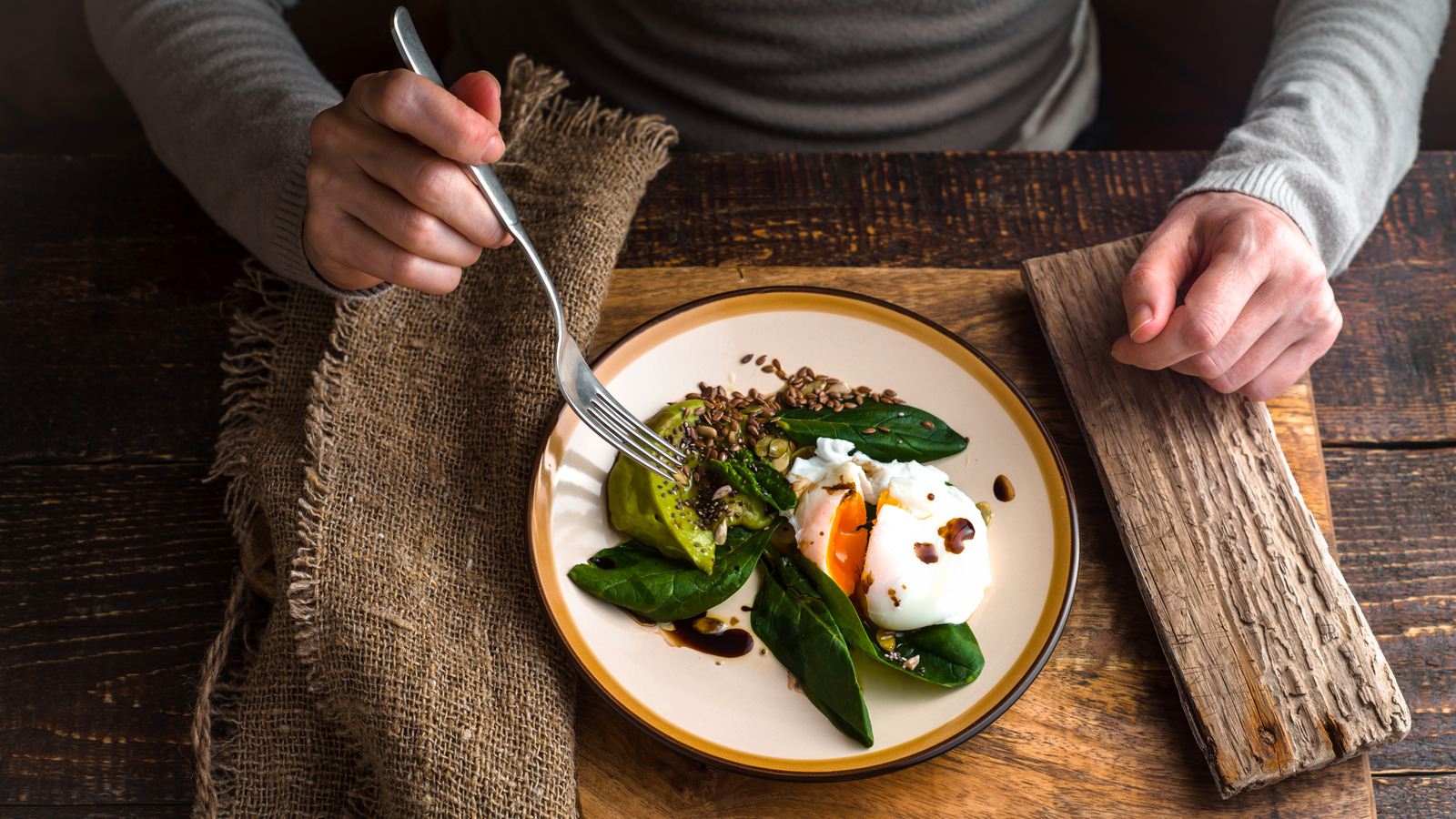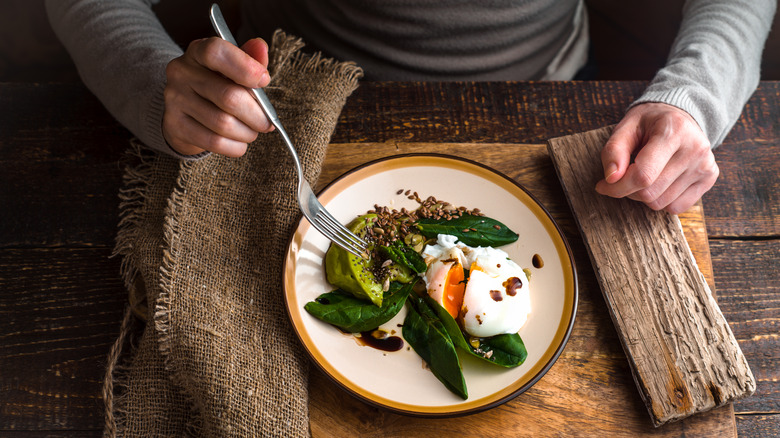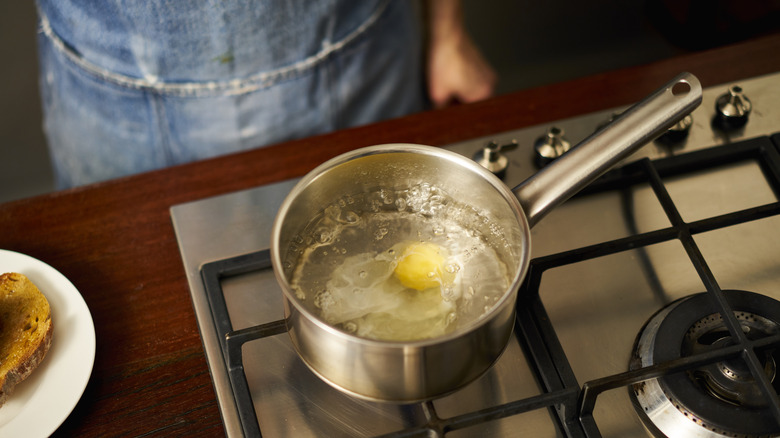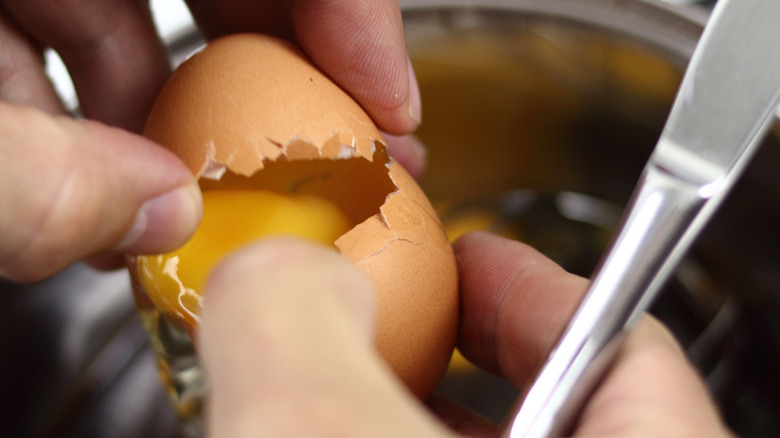
Eating Poached Eggs Has An Unexpected Effect On Your Cholesterol – Health Digest
We may receive a commission on purchases made from links.
For centuries, humans have cooked eggs in a variety of ways. They’ve pan-fried them. They’ve scrambled them. More recently, they’ve even microwaved them (which doesn’t always produce predictable results, unless you have a foolproof microwave egg-cooking tool handy.) But no option is quite as streamlined or inexpensive as poaching.
When you poach an egg, you only require a handful of items: a vessel like a small saucepan, enough water to cover the egg, and the egg itself. In just a few minutes, you have a fully cooked egg that’s ready to plate and enjoy. Yet simplicity’s not the only benefit of poaching your eggs. You may also be doing something important for your cholesterol levels — which would be particularly relevant if you’re one of the millions of people who struggle with high cholesterol.
To learn more about the potential cholesterol-related advantages of poaching eggs, Health Digest turned to Dr. Chris Mohr, fitness and nutrition advisor for Fortune Recommends Health, for his insights. In his view, poached eggs offer several upsides if you’re trying to maintain or lower your cholesterol numbers.
Water plus eggs equals a cholesterol-friendlier result
As Dr. Chris Mohr explains, poaching “doesn’t use extra fats like oil or butter, which are usually used when frying. Poaching doesn’t add fat or calories [and] retains [an egg’s] nutrients, making your meal both lean and nutritious.”
Eggs naturally contain a substantial amount of cholesterol alone — about 186 milligrams for each large egg, according to data from the U.S. Department of Agriculture (USDA). That’s relatively high, especially when you consider that the American Heart Association (AHA) suggests limiting cholesterol intake to as low as possible. (The guidelines used to limit cholesterol to 300 milligrams daily, but the AHA has eased back on recommending a specific number.) However, poaching eggs ensures that no additional cholesterol is brought into the picture — or onto the plate.
For example, the USDA shows that a tablespoon of butter contains 30.5 milligrams of cholesterol. If you fry or scramble your eggs using butter (or a similar fat), you’re just consuming more cholesterol. Though you could opt for a cholesterol-free spread like margarine, you still might be putting your cholesterol at risk in other ways. Introducing margarine into your diet could increase your consumption of saturated fats. Saturated fats are found in some margarine brands, which is why the Mayo Clinic cautions against assuming that all margarine is created equal. By sticking to poaching, you’re eliminating the need to weigh the cholesterol-related pros and cons of the fat you use.
Lessening the chance of egg cholesterol oxidation
Poaching offers another benefit as well, according to Dr. Chris Mohr, and it’s a “hot” topic: “Poaching an egg involves cooking at lower temperatures and doesn’t expose the egg directly to heat, which helps reduce the oxidation of cholesterol.”
Unfamiliar with the process of cholesterol oxidation or why it’s an important concept in this context? You may have heard of low-density lipoprotein cholesterol (LDL). It’s considered the “bad” form of cholesterol because, as Healthline notes, it consists of oxidated cholesterol that sticks to the insides of your arteries. Over time, the oxidated cholesterol causes narrowing of the arteries, making it harder for them to pump blood.
When you oxidate the dietary cholesterol in food, the food’s cholesterol is more likely to build up within the walls of the arteries. And heat (like when you cook eggs at high temperatures) is a notorious trigger of cholesterol oxidation. Since poaching only requires eggs to be exposed to a moderate amount of heat for a short duration of time, the cholesterol in the eggs has less opportunity to oxidate and contribute to cardiovascular problems down the road.
Perfect pairings for poached egg perfection
While you could eat your poached eggs solo as a way to keep cholesterol in check, adding other foods gives you the chance to play with taste, texture, and nutritional impact. For instance, Dr. Chris Mohr suggests serving your poached egg over whole-grain toast for a fiber-rich meal that could help regulate your blood sugar levels. Fiber doesn’t just assist with blood sugar, though. The Mayo Clinic notes that taking in five to 10 grams of fiber each day has been shown to lower LDL cholesterol.
Want to sneak vegetables or fruits into your poached egg feast to pack in fiber and nutrients? Dr. Mohr offers some ideas: “Adding leafy greens like spinach or kale adds essential vitamins to the meal. Avocado slices offer healthy fats and fiber, complementing the protein-rich egg. You can top your dish with tomatoes and peppers for some more flavor and vitamins as well.”
As a side note, you may want to switch up the type of egg you poach. Eggs from pasture-raised chickens are believed to have more nutrients than other types of eggs. A 2022 study in Foods found that pastured eggs from hens that ate a diet free from soy and corn contained more omega-3 fatty acids than eggs that came from cage-free hens. Though omega-3 acids don’t lower LDL cholesterol, they help the cardiovascular system in other ways, including reducing cardiovascular mortality risk, as noted in a 2021 review in The Lancet.






